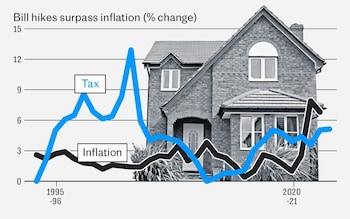Canary Wharf has been hit by a winding up petition in a row over an unpaid energy bill.
NPower filed a case on Friday to close Canary Wharf Management Limited, the property management arm of Canary Wharf Group (CWG), over an unpaid debt understood to be worth tens of thousands of pounds.
The debt is understood to have been owed by a retailer based in the area that closed last year and left its power bill unpaid. NPower, which is owned by E.on, had been chasing the money for months before filing the winding up petition. It called the legal threat a “last resort”.
Canary Wharf has now settled the debt, it is understood. Npower said on Monday it had “been able to speak to the customer today to agree a way forward that is satisfactory for both parties”.
Creditors can apply to the courts to forcibly liquidate a company if it owes them at least £750. Creditors must prove the business that owes them money cannot pay its debt. If successful, a company’s assets are sold to pay off its creditors.
The winding up petition was always unlikely to progress far in the courts, given Canary Wharf’s size and financial weight.
However, the fact that NPower resorted to the legal threat will be seen as embarrassing for the property giant, which has been grappling with a cultural shift to homeworking.
Canary Wharf Group, which is owned jointly by the Qatar Investment Authority and Brookfield Property Partners, has seen a wave of companies announce plans to quit its East London office district as they downsize, including HSBC and Clifford Chance.
The company’s annual report in April showed the value of its office portfolio plunged by nearly £1bn last year.
Canary Wharf has responded to the shift by building homes, restaurants and schools in the area to encourage more people to live there. It is also investing in life sciences facilities in an effort to attract business beyond its core audience of finance.
An Npower Business Solutions spokesman said: “We can confirm we sought a winding up petition for a customer’s unpaid debt.
“Such an action is a last resort and we always encourage business customers to engage with us if there is an issue with their account. We tried to speak to the customer over a number of months but received no response. We have been able to speak to the customer today to agree a way forward that is satisfactory for both parties.”
A Canary Wharf Management spokesman said: “The bill relates to a vacant retail unit after a tenant left its premises. We were recently made aware of the bill which has since been settled. Canary Wharf’s retail and leisure units are at a very high 97pc occupancy, continuing to attract world leading restaurants and retailers.”
Disclaimer: The copyright of this article belongs to the original author. Reposting this article is solely for the purpose of information dissemination and does not constitute any investment advice. If there is any infringement, please contact us immediately. We will make corrections or deletions as necessary. Thank you.



